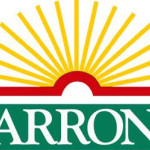- Industry: Printing & publishing
- Number of terms: 62402
- Number of blossaries: 0
- Company Profile:
Founded in 1941, Barron's Educational Series is a leading publisher of test preparation manuals and school directories. Among the most widely recognized of Barron's many titles in these areas are its SAT and ACT test prep books, its Regents Exams books, and its Profiles of American Colleges. In ...
Though generally thought of as Austrian, bakers from Alsace, Germany and Poland also claim credit for this light yeast cake. It's filled with raisins, candied fruits and nuts, and generally embellished with a simple dusting of confectioners' sugar. It's traditionally baked in a special fluted kugelhopf ring mold. Also called gugelhopf.
Industry:Culinary arts
This marine animal's name comes from the fact that it has a cucumberlike shape with short tentacles at one end. It's also known as sea slug. Though it is seldom found fresh in the United States, it's sold dried (usually marketed as trepang, iriko or bêche-de-mer) in Asian markets. It must be soaked in water for at least 24 hours, during which time it doubles in size and takes on a gelatinous quality. Its texture is rather rubbery and it's therefore most often used in soups.
Industry:Culinary arts
One to three scoops of ice cream, topped with one or more sweet sauces and various other ingredients including fruit, nuts and whipped cream. The sundae is said to have originated in the late 19th century because moralists decried the consumption of carbonated soda on Sunday . . . even in the popular weekend treat, ice-cream sodas. The noncorruptive "dry" version of that treat was ice cream topped with syrup and named after the day on which soda was banned. The spelling of this frozen confection was changed to "sundae" so as not to be sacrilegious.
Industry:Culinary arts
Italian for "cooked cream" panna cotta is a light, silky egg custard, which is often flavored with caramel. It's served cold, accompanied typically with fruit or chocolate sauce.
Industry:Culinary arts
A Middle Eastern puree of eggplant, tahini, olive oil, lemon juice and garlic. It's garnished with pomegranate seeds, chopped mint or minced pistachios and used as a spread or dip for pita or Middle Eastern flat bread.
Industry:Culinary arts
The brick- to dark purple-red berries of a decorative bush that grows wild throughout the Middle East and in parts of Italy. Sumac, which is sold ground or in its dried-berry form, has a pleasantly fruity, astringent taste that complements everything from fish to meat to vegetables. Sumac can be found in Middle Eastern markets. See also spices.
Industry:Culinary arts
Italian for "pot bellied," culinarily describing triangular-shaped stuffed pasta with pinked edges.
Industry:Culinary arts
A portion of the rib section of a lamb, usually containing eight ribs. A rack of lamb can be cut into chops or served in one piece — either as a rack or formed into a crown roast. See also lamb.
Industry:Culinary arts
Prior to the evolution of commercially available baking powders and yeasts during the 19th century, yeast starters were the leaveners used in breadmaking. Such starters are a simple mixture of flour, water, sugar and yeast. (At one time, airborne yeast was the only source used, but today convenient commercially packaged baker's yeast is more common. ) This batter is set aside in a warm place until the yeast ferments and the mixture is foamy. A portion of the starter — usually about 2 cups — is removed and used as the base and leavener for some bread recipes. Once fermented, yeast starters — the most famous of which is sourdough starter — can be kept going in the right environment for years simply by adding equal parts flour and water. Herman starter is a colloquialism (of unkown origin) for a honey- or sugar-sweetened starter used primarily for sweet breads. Starter should be refrigerated and can be stored this way indefinitely as long as it's replenished every 2 weeks. Before using or replenishing, it should be brought to room temperature. If a starter turns orange or pink and develops an unpleasantly acrid odor, undesirable bacteria have invaded it and the mixture must be discarded. Two cups of the foamy starter mixture can be substituted for each package of yeast called for in a recipe.
Industry:Culinary arts
